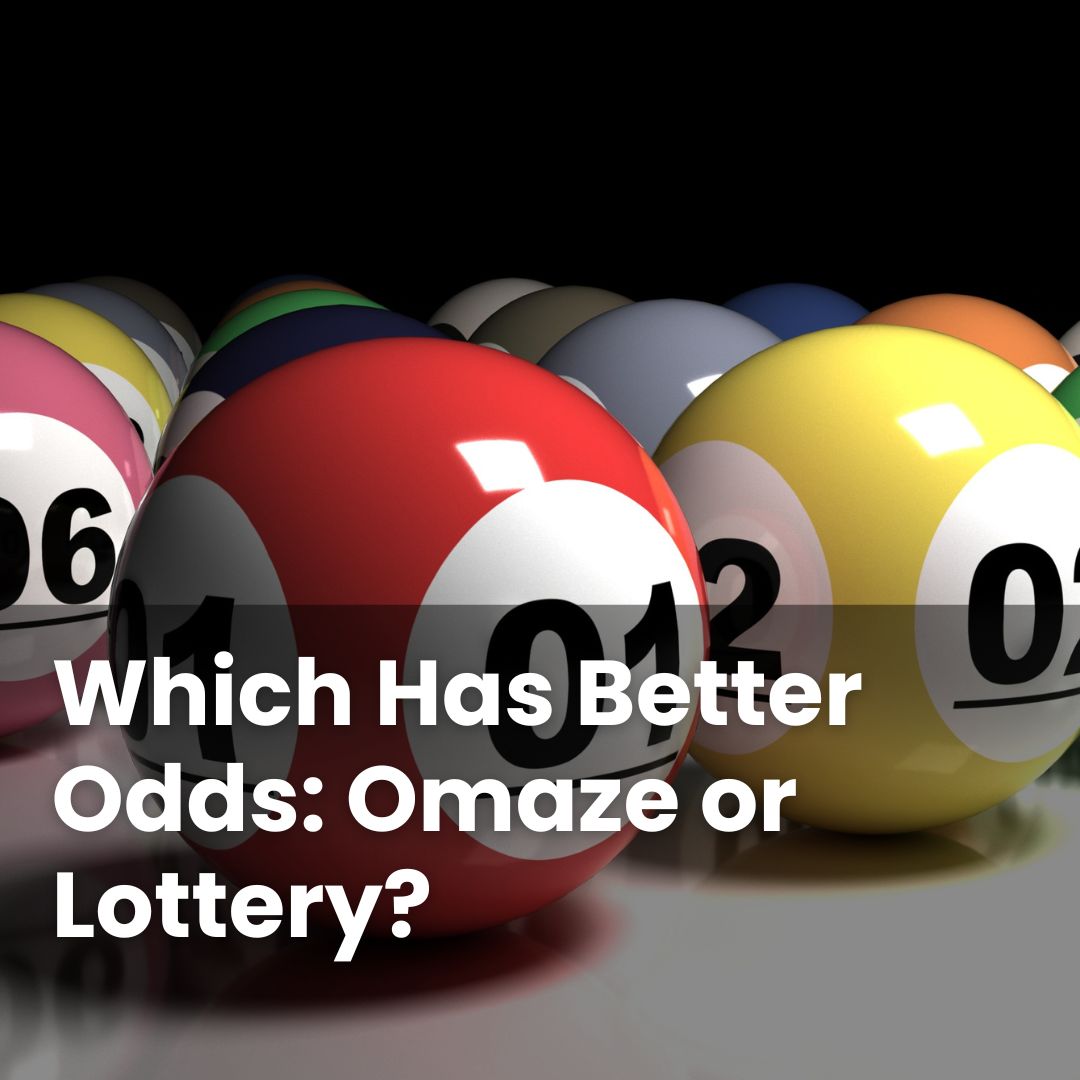If you have browsed prize draws or bought lottery tickets, you may have seen different ways to win prizes, such as through Omaze or the traditional National Lottery. Both options give you the opportunity to take part in prize draws, but the way they work, and your chances of winning, can be difficult to compare at first glance.
This article sets out the main differences between Omaze and the National Lottery, including how each works and what your chances are. If you have ever wondered whether one offers better odds than the other, or want to know what to consider before joining in, read on and discover more.
Key Differences Explained
Omaze and the National Lottery both use prize draws, but their entry methods and prize types differ. Omaze is a website where entries are usually gained by making a payment described as a donation, though there is also a free postal entry option available. Prizes may include property, vehicles, or cash, and some of the proceeds may support charitable causes. All entries, whether paid or free, are entered into the same draw. Draws take place regularly and sometimes include non-cash prizes.
The National Lottery, licensed by the UK government, involves purchasing tickets for specific draws. Prizes are mainly cash amounts, which depend on ticket sales and any rollovers. Entry is limited to buying tickets for each scheduled draw.
Both platforms use random selection to determine winners. It might be helpful to read the terms and conditions of each platform carefully, as these explain entry limits, eligibility, and prize details.
Chance of Winning with Omaze
In the UK, Omaze prize draws are classified as games of chance. Each entry, whether paid or submitted for free by post, has an equal chance of being selected.
Your chances depend on the total number of entries in that particular draw. For example, if there are 1,000,000 entries and you have 10, your chance would be roughly 10 in 1,000,000 (0.001%). The number of entries can vary significantly, especially for larger prizes. Omaze does not limit the total number of entries, so the odds can change as more people participate.
After a draw, Omaze usually provides the total number of entries, giving participants an idea of the approximate odds for that competition. Purchasing more entries increases the number of chances you hold but does not guarantee a win.
Discover The Best Online Casinos
Browse our list of top-recommended casino sites, read reviews from real players & be the first to get access to the latest casino bonuses
Chance of Winning with the Lottery
The National Lottery’s odds vary depending on the specific game and the number of matches required. For example, in the main Lotto game, the chance of matching all six numbers is approximately 1 in 45 million. For EuroMillions, the odds of winning the top prize are around 1 in 140 million.
There are smaller prizes with higher chances of winning by matching fewer numbers. For instance, the chance of winning any prize in Lotto is about 1 in 9. Prize amounts are funded by ticket sales, and jackpots can increase through rollovers if not won.
Results are determined by random draws. Holding more tickets can improve your chances in a draw, but the outcome is never certain. Players should always remember to gamble responsibly and within their means- never stake more than you can afford to lose.
What Are the Entry Costs?
Omaze entries typically involve making a payment online. For example, a £10 payment might provide 15 entries, while a £25 payment could offer 40 entries. Free entry is also available by sending a handwritten postal entry with a stamp, following the instructions on the Omaze website.
The National Lottery requires purchasing tickets for each game. Lotto tickets cost £2 per line, EuroMillions tickets are £2.50 each, and games like Thunderball are priced at £1 per line.
Both options allow participants to choose how many entries or tickets to acquire. It could potentially be useful to set a spending limit before taking part.
Prizes and Rewards Compared
The prizes offered differ between the two options.
Omaze prizes often include high-value items such as houses, cars, or cash amounts. Some prizes may also cover related expenses, such as home bills. Other prizes can include holidays or vouchers. Full details are provided before each competition closes.
The National Lottery offers only cash prizes. Jackpots start at a fixed minimum amount and can increase through rollovers. Smaller prizes are awarded for matching fewer numbers. For example, Lotto jackpots typically begin at around £2 million.
In the UK, gambling winnings are not subject to tax, so prizes are paid out in full.
Myth-Busting: Is Free Entry a Real Option?
Omaze provides a free entry option for UK residents. This involves sending a handwritten entry by post to the address given in the official rules. Each postcard counts as one entry, with the only cost being the postage stamp.
Both paid and free entries are entered into the same draw. All valid entries have an equal chance of winning, no matter how they are submitted.
Has Anyone Ever Won Omaze With Free Entry?
There have been winners in the UK who used the free postal entry option. Omaze shares information about winners on its website, including those who entered without making a payment. This indicates that all entries are treated equally in the selection process.
If you decide to use the free entry method, it could be a good idea to follow the instructions carefully to ensure your entry is valid.
The Bottom Line: Omaze or Lottery?
Choosing between Omaze and the National Lottery depends on your personal preferences, including the type of prizes, how you enter, and your budget.
Omaze offers a variety of prize types and supports charitable causes, with odds that vary depending on the number of entries received.
The National Lottery provides cash prizes with published odds and fixed jackpot structures. Prize amounts are influenced by ticket sales and rollovers.
Both operate as games of chance with random outcomes. All gambling activities inherently involve risk, so it might be helpful to consider your own spending limits. There are tools and resources available to support responsible participation.





